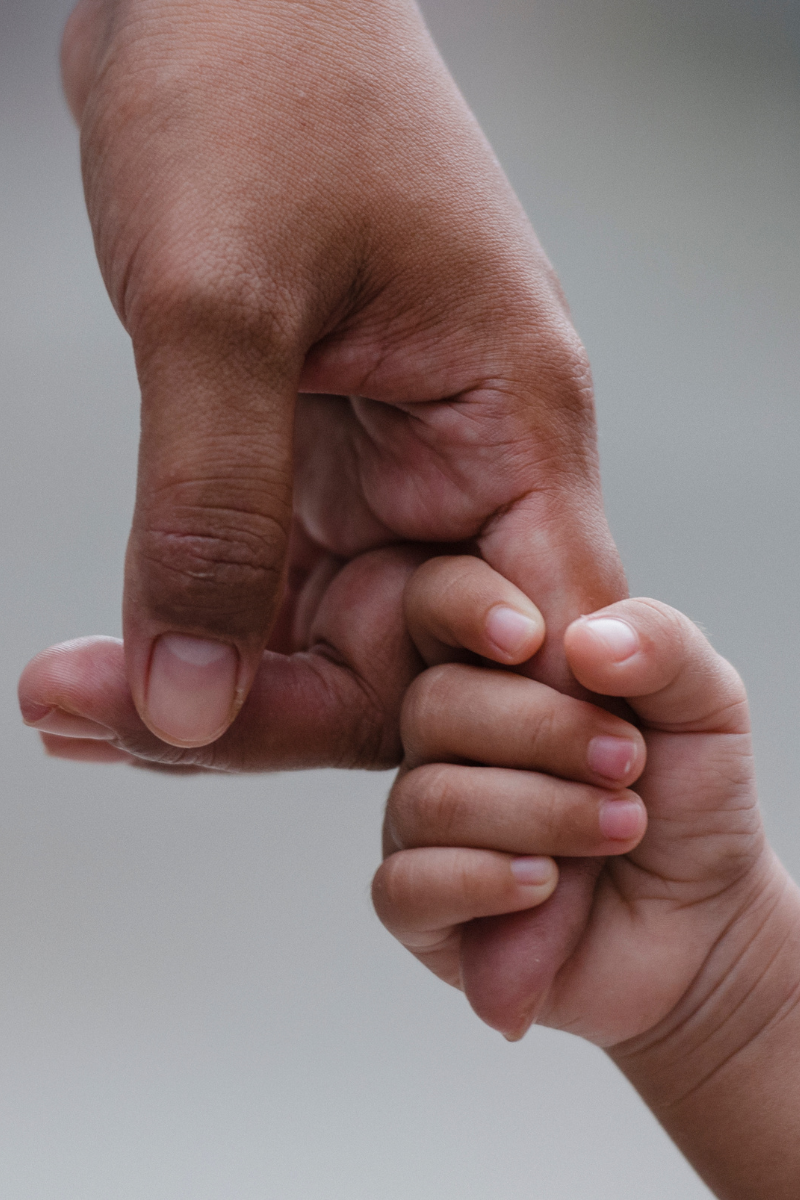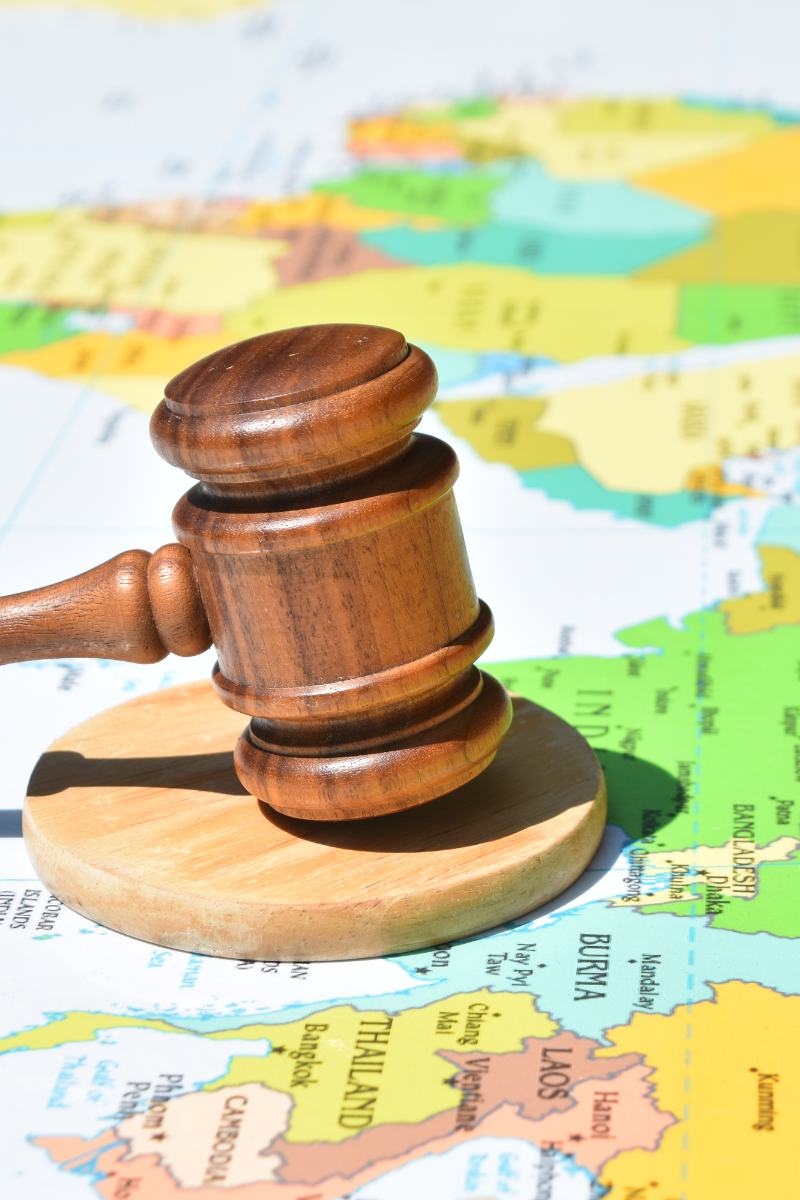Missing Children’s Day 2025: How the Hague Convention Can Help
Each year on May 25, the United States commemorates National Missing Children’s Day—a solemn reminder of the thousands of children who vanish annually. This day underscores the importance of safeguarding our nation’s youth and highlights the legal frameworks designed to address such tragedies, notably the Hague Convention on the Civil Aspects of International Child Abduction.
The Current Landscape: Missing Children in the U.S.
In 2024 alone, the National Crime Information Center (NCIC) recorded over 337,000 missing person entries, with children accounting for the vast majority. According to the National Center for Missing & Exploited Children (NCMEC), more than 93% of these cases involved endangered runaways, while abductions by family members constituted about 5%.
Notably, in 2024, Operation We Will Find You II, conducted by the U.S. Marshals Service, rescued 200 missing children across 16 federal districts, some of whom had been missing for years. These children were located in situations involving parental abduction, human trafficking, and online exploitation. More than 30% were located outside their state of origin, and 62% were recovered within seven days of operation launch.
These statistics underscore a growing concern about cross-border abduction—a phenomenon in which one parent unlawfully takes a child from the U.S. to another country or vice versa. These cases pose significant legal and emotional challenges and demand international cooperation.
The Hague Convention: A Critical International Legal Tool
The 1980 Hague Convention on the Civil Aspects of International Child Abduction is a multilateral treaty designed to protect children from the harmful effects of abduction and retention across international borders by facilitating their prompt return. The Convention aims to uphold custody and access rights under the law of the child’s habitual residence.
Key Objectives of the Hague Convention:
- Prompt Return: Children wrongfully removed or retained in another country must be returned swiftly to their country of habitual residence.
- Jurisdictional Integrity: Custody decisions should be made in the child’s country of habitual residence, discouraging jurisdictional shopping.
- Cross-Border Cooperation: Central Authorities are established in each signatory country to facilitate communication, gather documents, and coordinate returns.
Currently, 103 countries are signatories, including the United States. However, challenges remain when abductions occur to or from non-signatory nations or those deemed non-compliant.
U.S. Hague Convention Cases in 2024–2025
The U.S. Department of State’s 2024 Annual Report on International Child Abduction documented:
- 721 active cases involving 982 children.
- 77% of the new abductions occurred in countries that are Convention partners.
- India, Brazil, and Japan were again cited for demonstrating patterns of noncompliance, meaning children abducted to these countries are unlikely to be returned even under treaty obligations.
When the Hague Convention Works: Real-World Impact
The Hague Convention has proven effective in many cases where cooperation is strong between nations. One such case handled by Masters Law Group involved a father whose child was abducted from New Zealand to the United States. Through swift legal intervention, Masters Law Group secured a ruling that declared the child’s habitual residence was in New Zealand, resulting in the court-ordered return of the child.
These cases are emotionally charged and legally complex, often requiring deep expertise in international law, family law, and treaty application.
See more of Master’s Law Group’s successful Hague Convention cases below.
Challenges to Implementation
Despite its robust framework, the Hague Convention faces several implementation challenges:
1. Non-Signatory Countries
When a child is taken to a country that has not signed the Hague Convention, legal recourse becomes significantly more difficult. Parents often face bureaucratic delays, a lack of cooperation, or unfamiliar legal systems.
2. Patterns of Noncompliance
Even among signatories, compliance can be inconsistent. In 2024, the U.S. identified several countries where authorities regularly failed to enforce return orders or delayed proceedings to the point of undermining the Convention’s intent.
3. Exceptions to Return
The Hague Convention permits exceptions to return, such as:
- When the child would face a grave risk of harm.
- When the child, being of sufficient age and maturity, objects to the return.
- When more than one year has passed and the child is settled in their new environment.
These exceptions, while necessary in certain cases, are sometimes exploited to prolong litigation or prevent rightful reunification.
The Role of the U.S. Legal System and Practitioners
Navigating Hague Convention cases in the U.S. requires skilled legal counsel. The International Child Abduction Remedies Act (ICARA) governs the domestic implementation of the Convention, allowing parents to file return petitions in both state and federal courts.
Successful litigation often depends on:
- Establishing the child’s habitual residence.
- Demonstrating wrongful removal or retention.
- Overcoming any alleged exceptions claimed by the abducting parent.
This is where law firms like Masters Law Group excel.
Masters Law Group: A National Leader in Hague Convention Litigation
Litigation
Based in Chicago, Masters Law Group has a proven track record in international family law and Hague Convention cases. Led by Erin Masters and Anthony Joseph, the firm has earned recognition for its strategic, compassionate, and effective legal counsel.
Why Choose Masters Law Group?
- Proven Experience: Years of representing clients in international abduction cases.
- Comprehensive Representation: Handling litigation, appeals, and working with international authorities.
- Multijurisdictional Reach: Representing clients across the U.S. and abroad.
- Client-Centered Approach: Each case is handled with care, confidentiality, and dedication to child welfare.
From reuniting families to advocating for parents in complex custody disputes, Masters Law Group has consistently delivered favorable outcomes.
Preventing International Child Abduction
Prevention is key. Parents involved in cross-border relationships or custody disputes can take the following steps to help reduce abduction risk:
1. Legal Safeguards
- Secure court-approved allocation of parental responsibility.
- Include provisions restricting international travel.
- Register allocation of parental responsibility orders in both countries, if possible.
2. Passport Restrictions
- Enroll in the Children’s Passport Issuance Alert Program (CPIAP), which notifies parents when a passport application is submitted for their child.
- Request court orders that restrict passport issuance or require court approval for international travel.
3. Community Awareness and Education
- Encourage schools and caregivers to be aware of the allocation of parental responsibility.
- Educate children in an age-appropriate way about their rights and safety.
The Importance of Raising Awareness
National Missing Children’s Day isn’t just a date on the calendar—it’s an opportunity to raise awareness and advocate for stronger child protection laws, both domestically and internationally. Key efforts include:
- Public Awareness Campaigns by law enforcement and NGOs.
- Training for legal professionals and judges on international abduction laws.
- Bilateral cooperation agreements to enhance Hague enforcement.
Final Thoughts: Hope, Justice, and Advocacy
As we observe Missing Children’s Day 2025, we are reminded of the precious lives that hang in the balance when a child goes missing. For families facing the trauma of international abduction, the Hague Convention offers a path forward—a legal lifeline to justice and reunification.
Firms like Masters Law Group are essential allies in this fight. Their commitment to protecting children and helping reunite families demonstrates the power of legal experience guided by compassion and integrity.
If you or someone you know is facing an international child abduction situation, don’t wait. Seek experienced legal help.
To learn more about your rights and legal options, visit www.masters-lawgroup.com.
Together, through advocacy, education, and enforcement, we can build a safer world for every child.
Real Results: Successful Hague Cases
Masters Law Group has successfully represented parents in numerous high-profile Hague Convention cases across the U.S. Below are a few recent examples:
2024:
- District of South Carolina Rock Hill Division / Mexico: Decision and Order/ Motion for Summary Judgment
- Northern District of Illinois / Ireland: Memorandum Opinion and Order
- Western District of Michigan / Brazil: Representative Decisions
- District of Colorado / Colombia: Aguirre, Decision and Order
2023:
- Northern District of California / Cyprus: Efthymiou v. Labonte, Findings of Fact and Conclusions of Law
- Southern District of Iowa / Mexico, Order Adopting Report and Recommendation
Prior:
- Eastern District of Wisconsin / Mexico: Hinnendael, Decision and Order
- Northern District of Illinois / New Zealand: Ho, Memorandum Opinion and Order
- Northern District of Illinois / Lithuania: Sulcaite, Memorandum Opinion and Order
Frequently Asked Questions (FAQs)
- What should I do if my child has been taken to another country by their other parent without my permission?
If your child has been wrongfully taken to or retained in another country, and that country is a signatory to the Hague Convention, you may be able to file a petition for their return through the U.S. State Department’s Office of Children’s Issues. It’s critical to contact an attorney experienced in Hague Convention cases, such as those at Masters Law Group, as soon as possible to begin legal proceedings and gather the necessary documentation. - What countries are part of the Hague Convention, and what happens if my child is taken to a country that is not?
As of 2025, 103 countries are parties to the Hague Convention on the Civil Aspects of International Child Abduction. If your child is taken to a country that is not a signatory, legal options become more limited and complex. In such cases, you may need to rely on diplomatic channels or pursue remedies under the laws of that country. Working with experienced legal counsel can be extremely beneficial in navigating these challenging circumstances. - How long does the Hague Convention process usually take?
The Hague Convention emphasizes expeditious handling of cases, ideally within six weeks. However, the duration can vary depending on the country involved, the complexity of the case, and whether exceptions to return are raised. Some cases may be resolved in a few months, while others can take over a year, particularly when appeals or noncompliance are factors. - What if the abducting parent claims the child will be in danger if returned?
Under the Hague Convention, one exception to the return of a child is if there is a “grave risk” that return would expose the child to physical or psychological harm. These claims are taken seriously by the court and must be supported with credible evidence. Masters Law Group has experience countering or substantiating these claims, depending on the client’s position, through strategic legal argumentation and expert testimony. - Can I prevent international abduction before it happens?
Yes. Proactive steps include securing detailed custody agreements that restrict international travel, enrolling in the Children’s Passport Issuance Alert Program (CPIAP), and requesting court orders that require joint consent or court approval for passport issuance or foreign travel. An experienced family law attorney can help you implement safeguards tailored to your situation.















